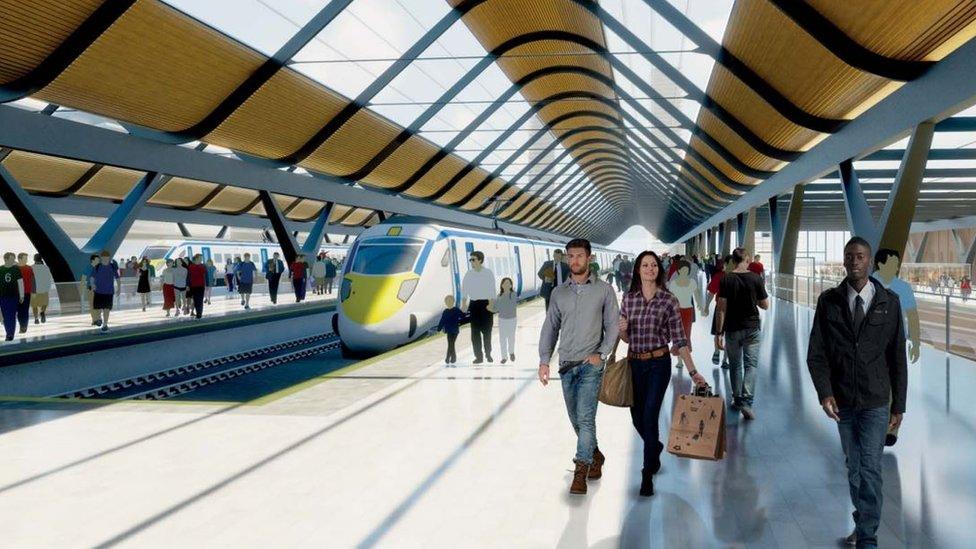HS2: Arrests as 'Roald Dahl wood' felling starts
- Published
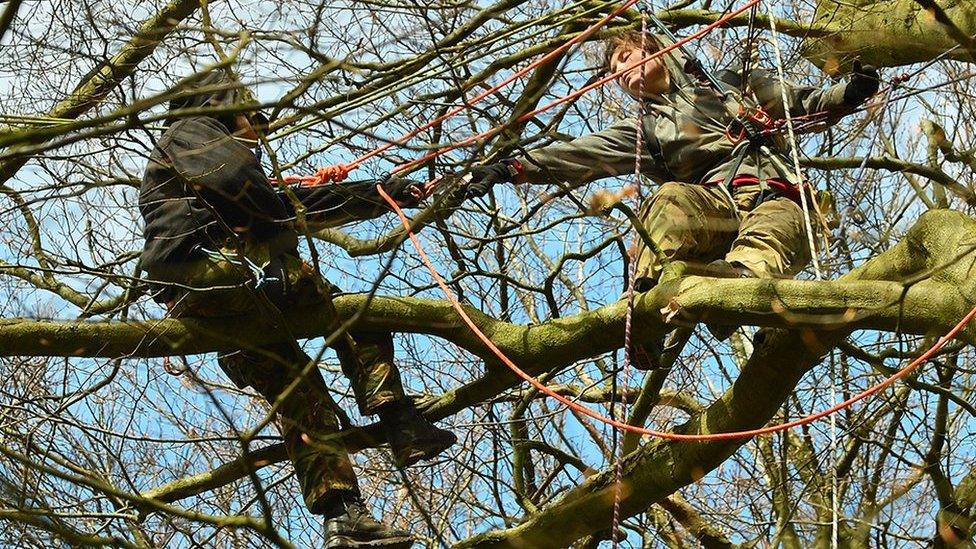
An activist known as Pigeon in a stand-off 30ft (9m) up in a beech tree with a bailiff working for the National Eviction Team
Three people were arrested as campaigners protested against the felling of a woodland said to have inspired Roald Dahl.
Natural England issued licences last week, external permitting the felling of two-thirds of Jones' Hill Wood, which is in the path of HS2.
Campaigners said they wanted to "fight for the woodland" in Buckinghamshire.
A spokesman for the high-speed rail line said 4.1 hectares (10 acres) of new woodland would be created nearby.
The three have been charged with obstructing a public highway, while a fourth was arrested on suspicion of a public order offence dating to last month, and released under investigation.
The estimated final cost of the HS2 project is now more than £100bn.
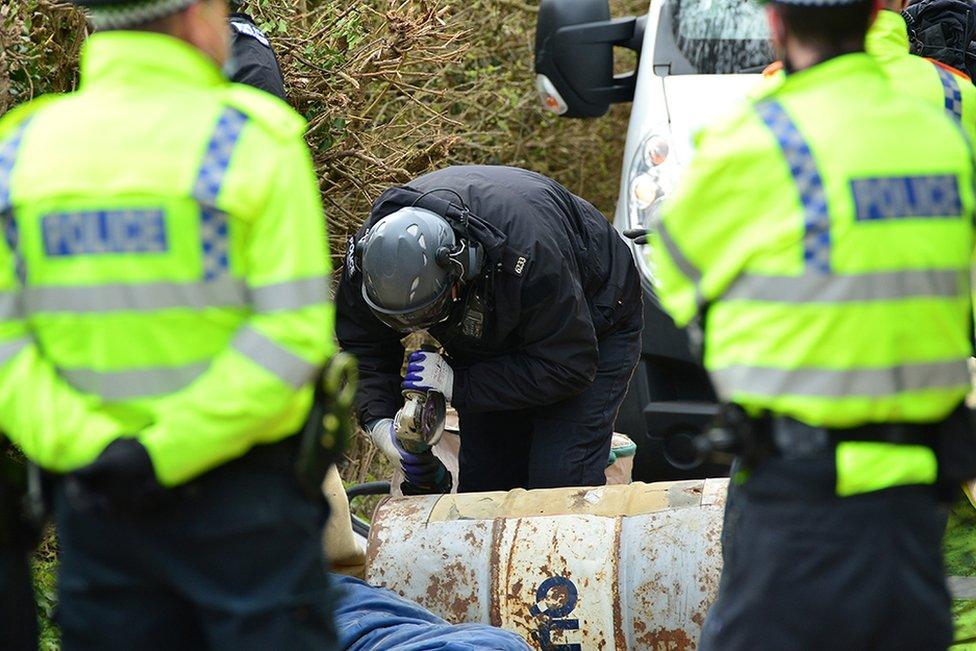
Protesters who blocked an access route to Jones' Hill Wood are removed
Roald Dahl wrote his stories in the Buckinghamshire town of Great Missenden, external, and classics like Fantastic Mr Fox are said to have taken inspiration from the beech wood.
Its felling had been delayed since last year after bats were discovered roosting at the site, which is in the Chiltern Hills Area of Outstanding Natural Beauty, external.
On 30 March, Natural England's director for wildlife licensing and enforcement cases Dave Slater said: "After careful assessment, we have determined that the felling of a small number of trees at Jones' Hill Wood will not be detrimental to the overall conservation status of the bat populations in this area."
He added "mitigations", including the creation of new roosts, had been put in place.
'Making a stand'
A protester in her mid-20s, who called herself Pigeon, was involved in an aerial stand-off with a bailiff on Wednesday that went on for several hours.
Speaking to the BBC from high in the branches of a beech tree, she said she was "here to fight for the woodland - I'm making a stand".
She said: "I'm here in physical form because the legal system is not designed to protect the environment.
"HS2 isn't encouraging rail travel - if it were then it would be making it cheaper and more accessible than car travel.
"It will be more expensive, and it won't be carbon neutral in its 120-year lifetime."
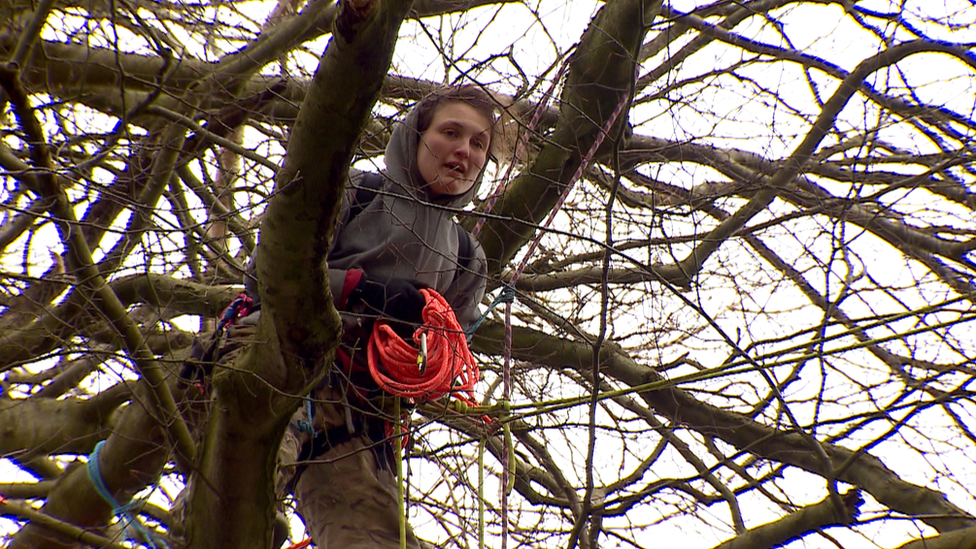
Pigeon said she was making a stand
The campaigner, who has been at the site on-and-off for nearly a year, added: "The damage that is being done to facilitate this railway is extreme."
Dahl, a keen walker, wrote Fantastic Mr Fox in 1970.
The much-loved story tells the tale of wily Mr Fox, who outwits farmers Boggis, Bunce and Bean.
The real-life Bunce family still farms the area. Peter Bunce told the BBC that he played in the wood with his brother and sisters as a child and added he was "gutted" at its destruction.
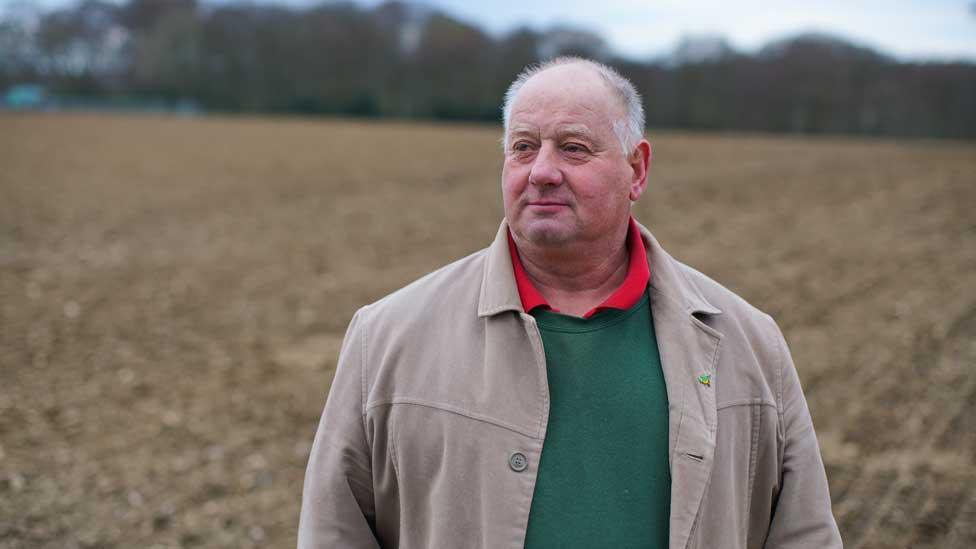
Peter Bunce, whose family still farm locally, said the destruction of the wood was "disgusting"
"It's disappearing as we look in front of us," he said. "It's just hollow. There's no feeling left.
"It used to be full up with primroses, foxgloves, bluebells, wood anemones, all sorts of things … it's disgusting what they have done."
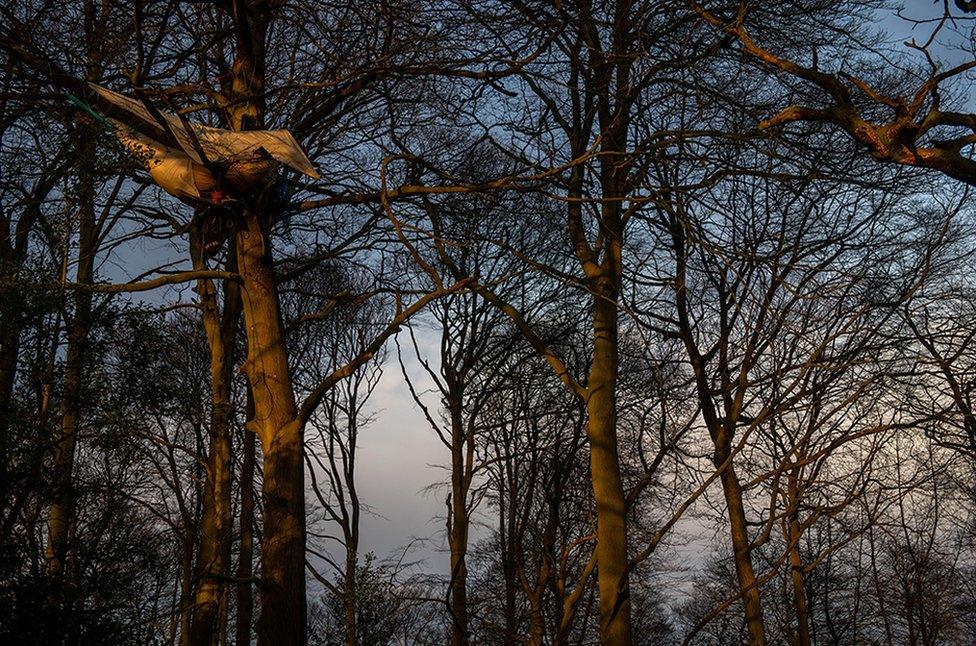
An activist sleeps in a tree at sunrise as they prepare themselves for eviction from Jones Hill Wood
The construction and operation of Phase One of HS2 is authorised by the High Speed Rail (London - West Midlands) Act 2017.
It plans to create a new woodland, planting 22,000 trees, which will link to the remains of Jones' Hill Wood, connecting it to another wood.
Alex Towse, construction director with HS2 contractor Fusion JV, said: "What we are doing through the compensation is to look at the native species that are already within the landscape and design a mitigation scheme that is sympathetic to what is around it.
"And by joining up those existing habitats, it creates a green corridor along the route."
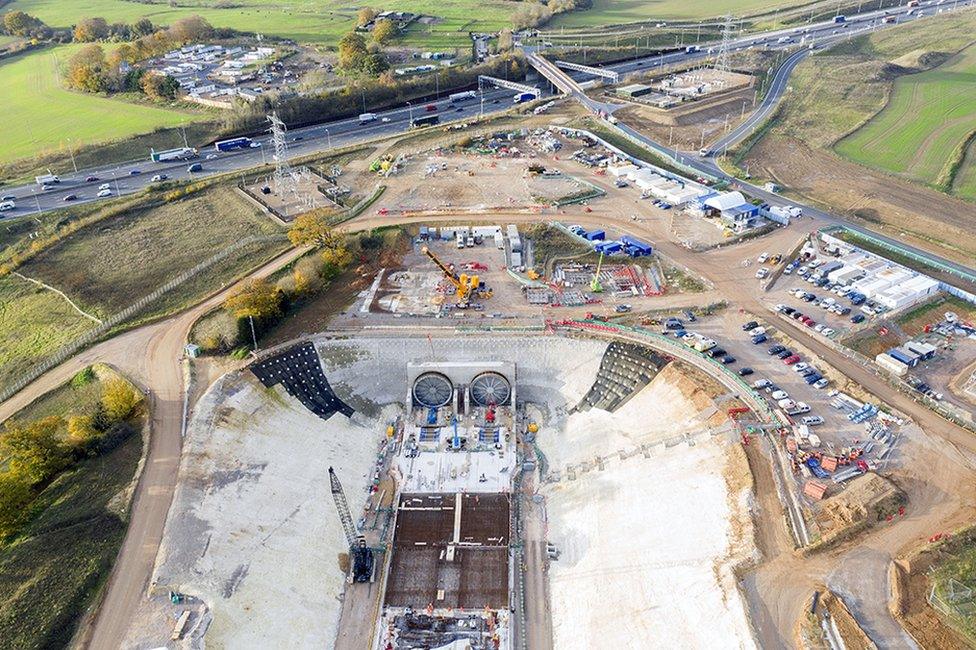
The construction site at the entrance to the HS2 Chiltern tunnel, beside the M25 in Denham, Buckinghamshire
HS2 said it would plant up to seven million trees and shrubs along the first phase of the line and create more than 33 sq km (12.7 sq miles) of new woodland, wildlife and river habitats.
It claims to be one of the most sustainable high-speed railways in the world, supporting the UK's transition to a net zero economy.
Follow Claire on Twitter, external
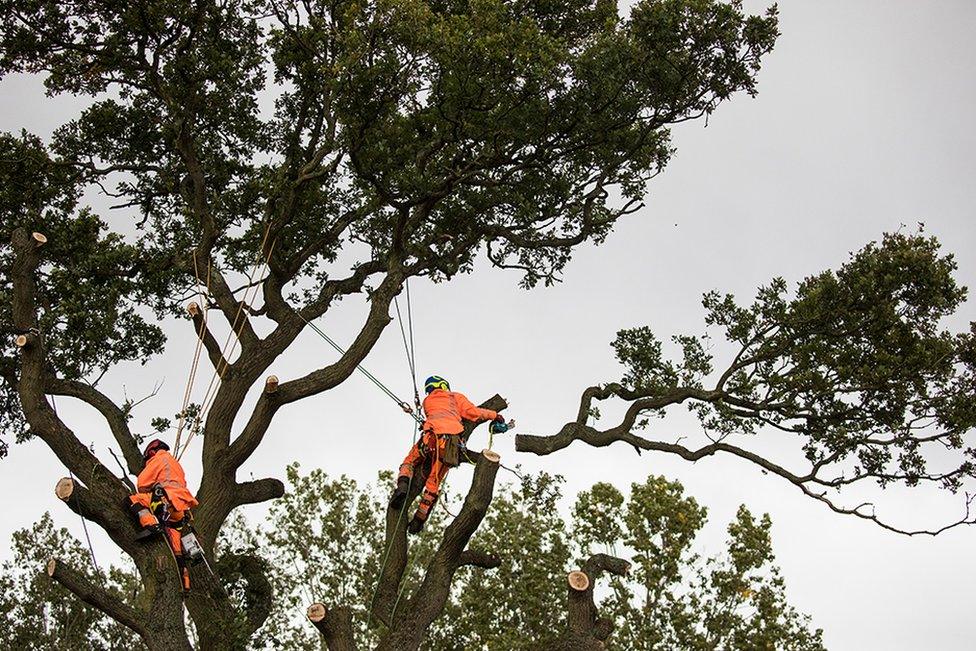
A 200-year-old oak tree in Steeple Claydon, known locally as the 7 Sisters Oak, was felled to make way for the line
Related topics
- Published23 October 2020
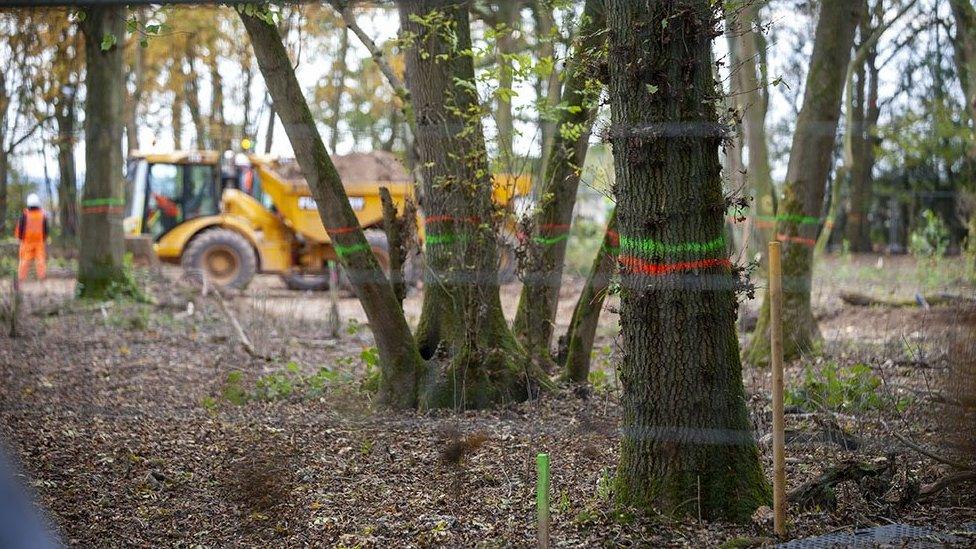
- Published1 October 2020
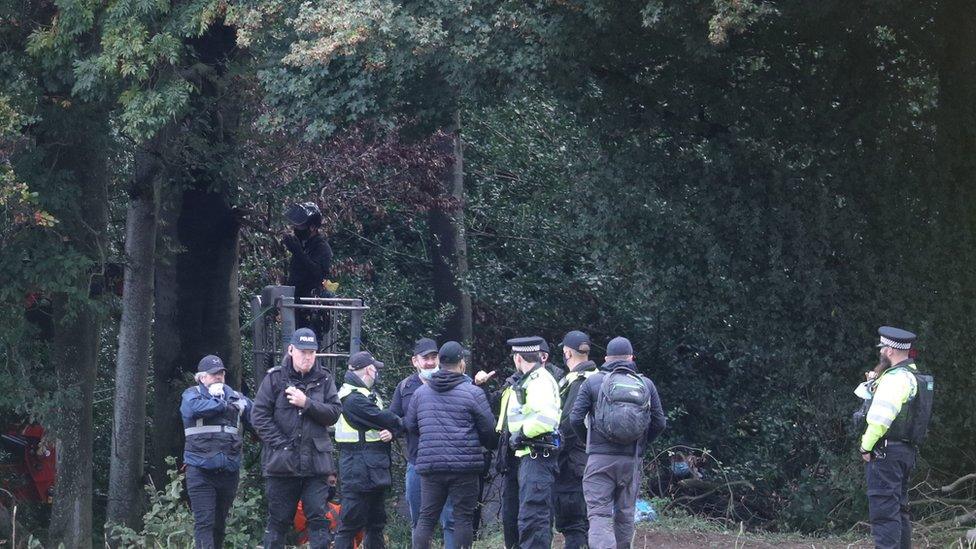
- Published4 September 2020
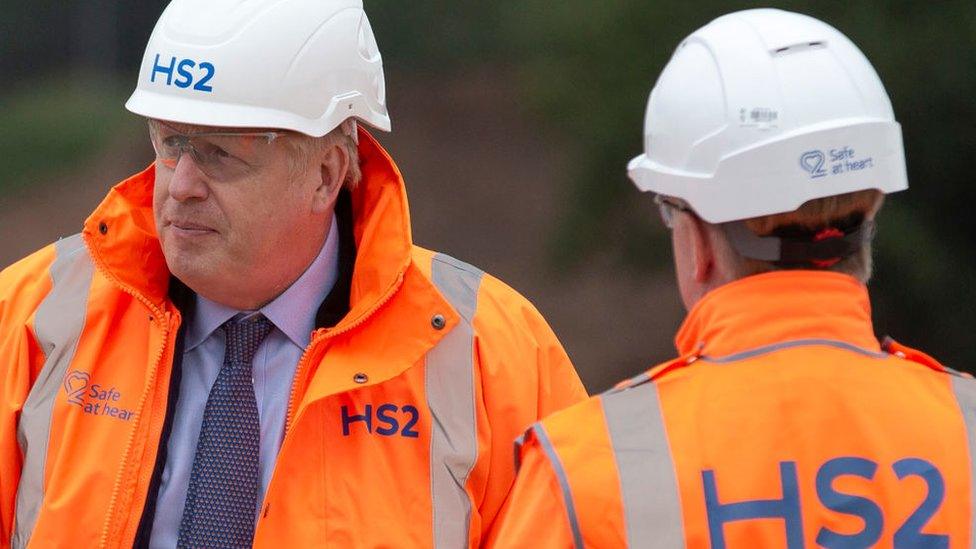
- Published6 October 2023
